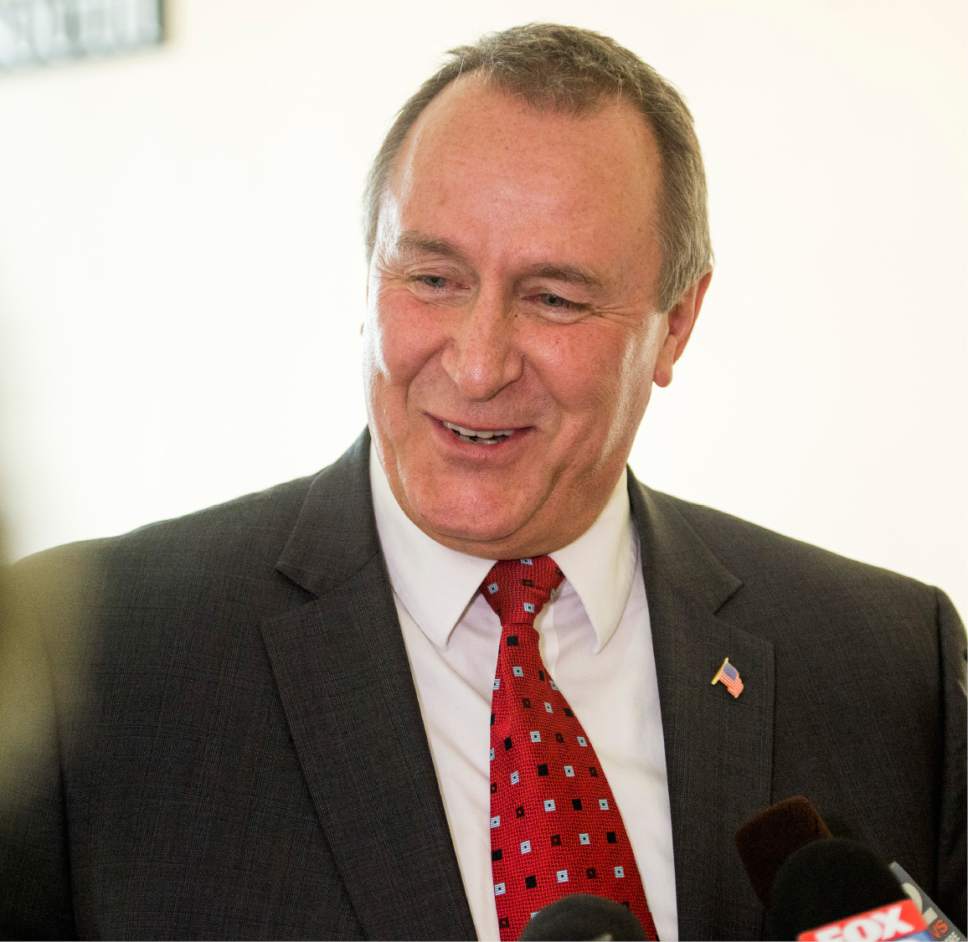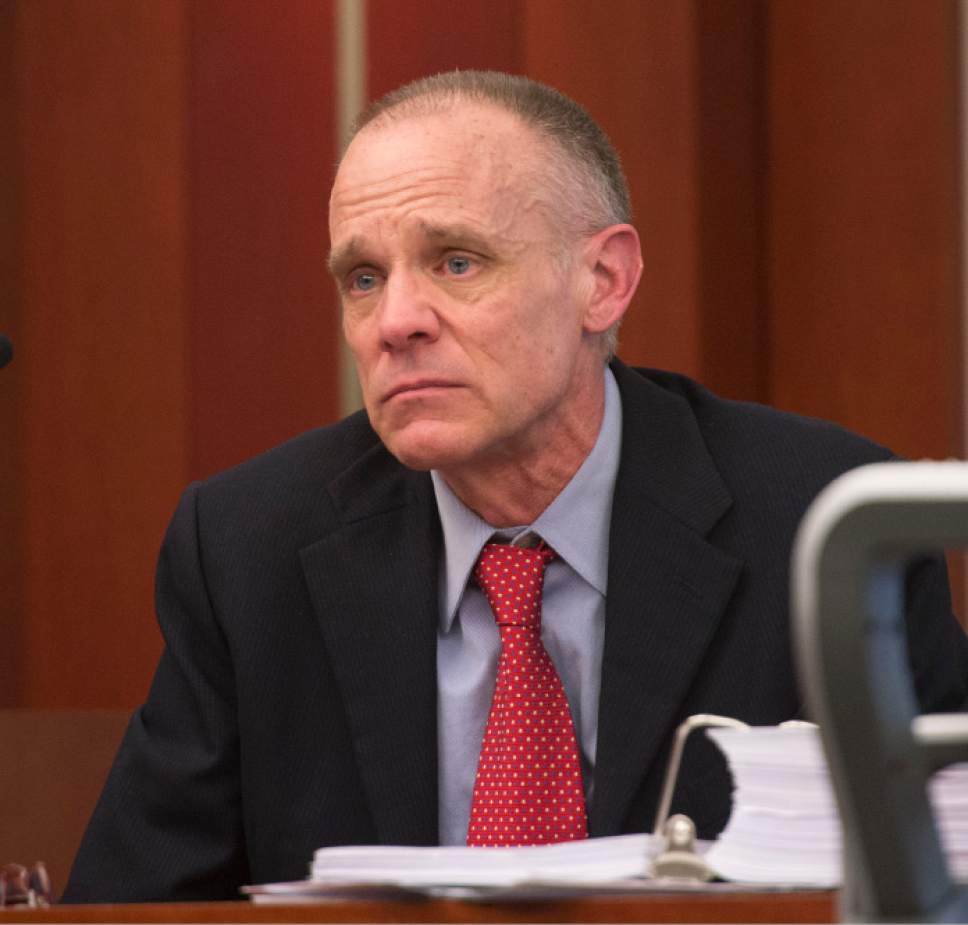This is an archived article that was published on sltrib.com in 2017, and information in the article may be outdated. It is provided only for personal research purposes and may not be reprinted.
Former Utah Attorney General John Swallow says prosecutors need to make up their minds.
That's the contention of a new 3rd District Court filing that asks a judge to force the Salt Lake County district attorney's office to decide which alleged criminal act — bribery or extortion — is the basis for the racketeering charge for which the former Republican officeholder is on trial.
"These charges are mutually exclusive and the same facts cannot support both allegations because they cannot both be true," Swallow attorney Scott C. Williams wrote in court papers filed Monday.
Prosecutors have said Swallow acted in concert with his immediate predecessor, Mark Shurtleff, and Shurtleff's so-called "fixer," the late Tim Lawson, to solicit or accept a bribe from businessman Marc Sessions Jenson in 2009, when the private financier was under a plea-in-abeyance agreement with the Shurtleff-led attorney general's office and owed millions in court-ordered restitution.
The act of bribery, court filings suggest, was that Jenson paid for trips the three men made to Pelican Hill, a luxury California resort, and covered various expenses.
But twice since January, Jenson has testified to being extorted by Shurtleff, Lawson and Swallow, who was then a private citizen but reportedly had said he was destined to replace Shurtleff.
Under the law, proving a bribe requires showing that both parties willingly participated in such an act. Without that proof, the charge doesn't hold up, court papers say.
It can also be disproved by showing a theft by extortion, which requires that one party was forced by another to "surrender their property on the threat of retribution," court papers say.
Having contradictory allegations of fact "denies a criminal defendant his right to adequate notice, failing to inform him of the theory the prosecution hopes to establish at trial and thereby prejudicing his ability to prepare a full and complete defense," court papers say.
Presenting such conflicting facts to a jury also burdens the defense, Williams wrote, "and would offend our notions of fairness and due process."
Swallow has been on trial since Feb. 7. He was originally charged with 13 public corruption-related counts, although three were dropped when prosecutors rested their case last week.
The defense is expected to call between six and eight witnesses Tuesday, when court proceedings resume. If convicted, Swallow faces up to 30 years in prison.
Prosecutors had not filed a response to the new claims as of Monday.
The motion was one of three submitted to the court by the defense since Saturday.
The others ask Judge Elizabeth Hruby-Mills to strike some witness testimony — one on due-process grounds and the other citing hearsay.
In the first, the defense argues for excising the statements of an FBI agent who testified to things Swallow told the agency in 2013 about his use of a $1.5 million luxury Lake Powell houseboat owned by St. George internet marketer Jeremy Johnson, who is now in federal prison.
Court papers say the agent, Jon Isakson, mischaracterized Swallow's words, telling the jury that Swallow "mentioned" being offered to use the houseboat and "mentioned" that it had no food or power and was tied to a dock.
An interview transcript, however, shows Swallow wasn't speaking about his own knowledge, court papers say, but was repeating what he had been told by Johnson. That makes it hearsay, the defense argued, and not admissible.
The defense also wants the judge to reconsider her decision not to dismiss an objection-of-justice charge, which is tied to the houseboat statements.
A motion filed Sunday points to additional concerns about the allegations of extortion raised by Jenson.
Swallow has been not charged with the crime of extortion, nor could he be, his attorneys say. That's because the alleged act occurred in 2009 and the statute of limitations ran out before Swallow was charged in 2014, so it cannot be used to support the racketeering charge, court papers say.





